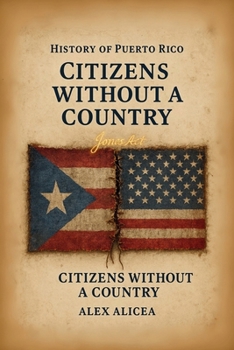History Of Puerto Rico: Citizens Without a Country Puerto Rico and the Jones Act of 1917
In 1917, a single signature changed the lives of Puerto Ricans forever. The Jones-Shafroth Act granted U.S. citizenship, but with a catch: Puerto Ricans now bore the responsibilities of citizenship without its full rights. Citizens Without a Country dives into the nuances of this paradox, exploring how a seemingly beneficial law masked deep complexities of identity, loyalty, and power.
Through vivid historical storytelling this book brings to life the impact of the Jones Act on the political and social fabric of Puerto Rican society. Amid the United States' rise as a global power, Puerto Rico's unique position as a U.S. territory highlighted stark contrasts: Puerto Rican culture thrived, yet American corporate interests grew dominant. What does it mean to be Puerto Rican and American when true representation is withheld?
Readers will uncover the powerful and at times contradictory emotions evoked by the Jones Act, pride in military service, resistance to Americanization, and ongoing battles for self-determination. From cultural resistance to legal battles, Puerto Ricans navigated a dual identity, challenging the very definitions of citizenship and democracy. This narrative invites readers to question what citizenship really means and why full political inclusion remains elusive for Puerto Rico.
Join the journey to understand how historical decisions continue to shape modern debates over Puerto Rico's status, economy, and identity. Citizens Without a Country is essential for anyone who wants to try to grasp the complexity of the U.S.-Puerto Rico relations and reflect on broader issues of citizenship and equality in America.
Related Subjects
History




